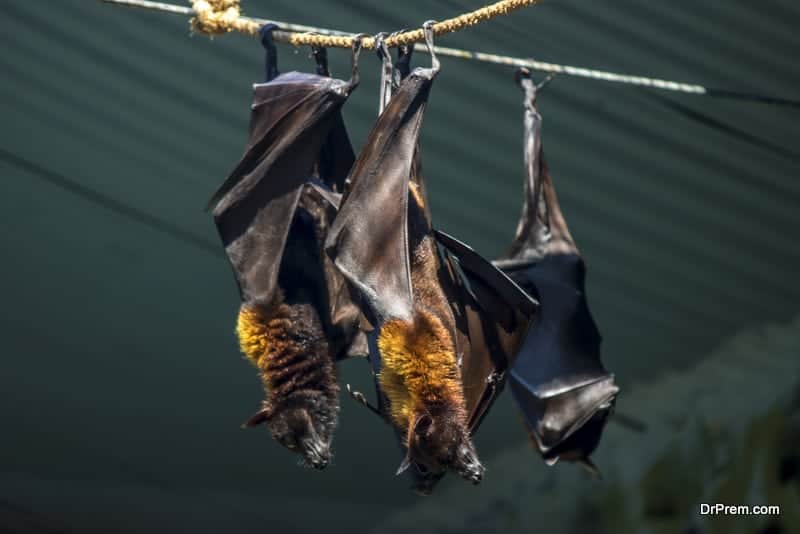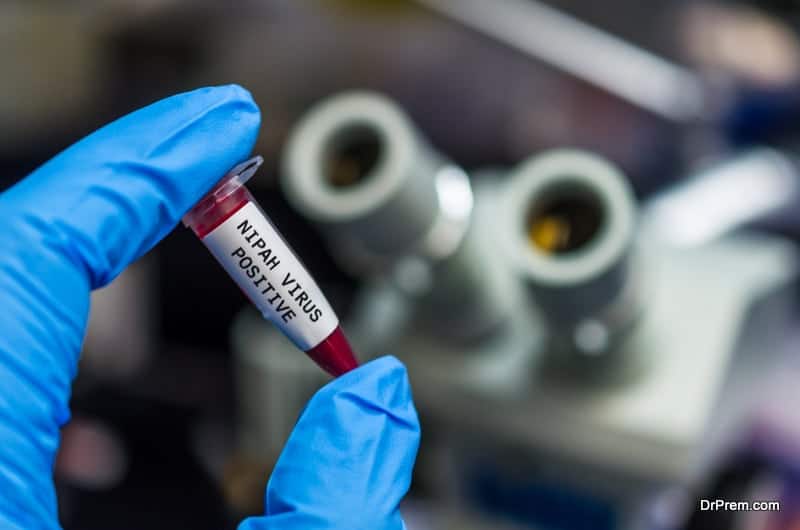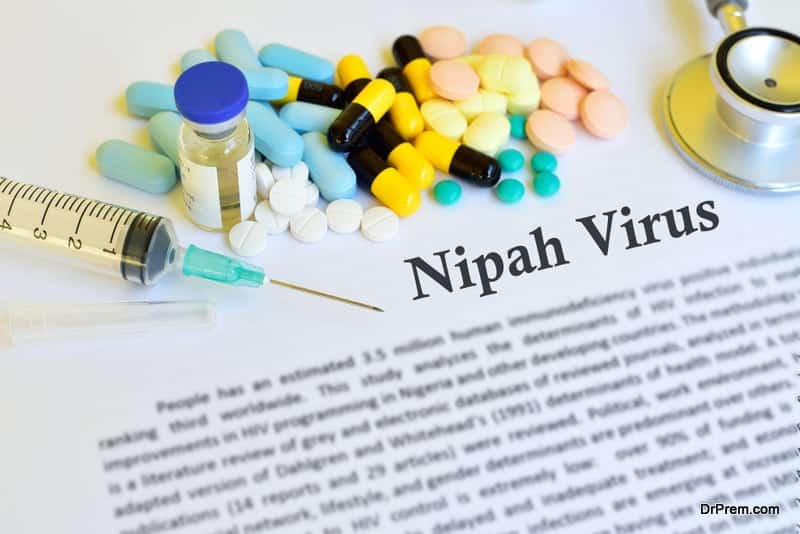We have heard of many outbreaks of deadliest disease many times. In the recent times, the Nipah outbreak has been making rounds. Kerala is shattered due to unexpected viral attack. The outbreak has so far claimed more than 11 lives. The government has issued a high alert in the country and has also requested people to avoid traveling to four districts of Kerala, unless emergency. However, the chief health secretary of Kerala, Mr. Rajeev Sadanandan has further assured that the government has already initiated necessary precautionary steps to limit the spread of Nipah Virus.
NiV outbreak in Kerala

Although the state is facing a serious health crisis, doctors are claiming that the virus has been contained to a large extent. The government has initiated implementation of all the safety protocols to limit the viral spread.
Medical professionals at the Kozhikode Medical College were supplied with all the protective gears as per the specifications proposed by National Institute of Virology. The director of National Centre for Disease Control has sent a team of experts for further assistance, in limiting the outbreak. The government has issued a warrant for people, who are spreading the fake news about the viral outbreak and deaths.
What is Nipah Virus?

Further research in this regard has indicated it to be a ribonucleic acid virus from the family Paramyxoviridae and genus Henipavirus. The virus is named Nipah after the Malaysian Village, where it was broke for the first time. So far, this deadly Nipah Virus has infected more than 265 people. Out of which 50% needed immediate intensive care due to the severe spread of infection in the central nervous system.
WHO has pinpointed fruit bats to be the natural hosts of the virus, belonging to the family Pteropodidae and genus Pteropus. Studies in this regard have indicated that due to the destruction of their natural habitats. The species has to bear a lot of stress and hunger, as a result of which their immune system is getting weaker progressively. Due to weak immunity, the viral load can be increased within a short period of time, shedding viral particles in their saliva and urine.
WHO Fact sheet for public awareness

- The primary hosts of the Nipah Virus are infected fruit bats that can shed viral particles in the environment through body secretions, such as saliva, urine, excreta, and
- The Nipah Virus (NiV) is found to be highly transmissible through pigs and is generally being spread by coughing.
- In humans, the transmission may occur via direct contact with infected pigs and is claimed to be the cause of first Nipah Virus endemic in Malaysia.
- Indirectly, humans may be infected through drinking of date palm sap that is already contaminated by fruit bats.
- In India, the outbreak of Nipah Virus was first evident in Siliguri in the year 2001. During the period, close to 33 health workers were reported to be ill due to hospital-induced infections via direct human-to-human transmission.
- During Bangladesh outbreak, the evidence supports spread of virus directly or indirectly through infected bats.
Nipah Virus Symptoms

However, the patient may express some peculiar symptoms such as several days of fever, mental disorientation and persistent drowsiness from 4th to 14th-day post viral infection. These symptoms may last for up to 7 to 10 days and have to be attended immediately within this period; otherwise, the patient may go into a coma within a time span of 24-48 hours.
How Nipah Virus Spread can be prevented?

Evidence has proven that drinking raw date palm sap that is contaminated by infected fruit bat can initiate a spread of disease, and hence to be avoided. You can prevent the spread of infection through following ways:
Prevention of animal to human transmission
Since domestic animals like pigs, goats, cats can be the carriers through consumption of partially eaten infected fruits; they are to be kept indoors and fed through limited human handling.
If in case any of these animals are found to be infected, they should be isolated from other animals and treated immediately. It is better to avoid climbing trees that may have been contaminated through body secretions of fruit bats.
Prevention of transmission via humans

The spread of disease is through airborne mode, direct contact with infected pigs, bats, and other animals are to be avoided. Healthcare professional should follow standard guidelines that include washing hands, wearing gowns, masks, caps; in order to prevent the spread of the virus.
If in case the infected person is facing respiratory issues the risk of other people being infected is higher; and hence, it is always advisable to avoid sharing anything such as food, bed, napkins with anyone.
Studies have evidently proposed spread of the virus through other body fluids as well, such as urine, semen, etc.; thus, one has to be cautious before sharing washrooms with an infected person.
The Bottom Line






